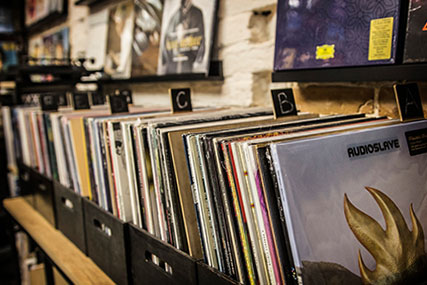I recently overheard a comment by one of our staff which really resonated with me. He said, ‘ music is emotion, and when the emotion is missing, you stop listening’.
I was around during what many consider the Golden Years of Hi-Fi, the ’70s and ’80s. I sometimes wonder why owning a Hi-Fi system was much higher on the consumers’ priority list then than it is today.
As someone who has always had a passion for music, it is easy to go down the lack-of-emotion route, and with considerable supporting evidence. While avoiding the anti-CD brigade, we must admit that the early CD releases left much to be desired. I recall that one of my albums on high rotation at the time was Joe Jacksons Night and Day. When I replaced the LP with a CD, it never had the same impact. It is difficult to pinpoint why; all the music was there (less the surface noise), but there was no involvement, and as a result, I rarely played the album again.

MP3 was released in the early ’90s but did not gain traction until the release of the first Apple iPod in 2001. Recorded music sales peaked in 2000, around the same time as the release of Napster (1999) and the launch of the first Apple iPod (2001), both of which are considered backward steps in terms of musical reproduction.
From 2000, when digital music first appeared as a serious format, it seems that many people coincidentally stopped listening! Recorded music sales declined at an alarming rate, and by 2015 sales had dropped by close to 60%. Evidently, the argument from one of my staff rang true – that if you are not emotionally attached to your music – why bother listening at all?
There is, of course, another argument. During the ‘Golden Years’ of Hi-Fi, there were fewer distractions. At best, you had the radio, four channels of (black and white) TV and recorded music as forms of entertainment in the home. There was no internet, mobile phones, laptops, computer games, video streaming etc., to divert your attention. Today’s opportunities for entertainment in the home are vast, and consuming recorded music is only one option – our limited leisure time is being continually sliced and diced.

However, there has been a marked turnaround in music sales since the low point of 2015, so much so that in 2021 sales exceeded the peak of 2000 and continues to rise. Yes, part of this can be attributed to covid – but it has been a steady and consistent growth for several years. (Interestingly, Australia did not share in the phenomenal growth of some nations during the covid years – Latin America grew 31%, North America 22%, Asia 16%, Europe 15% and Australia 4%).
Aha, I hear you say – Vinyl is back, and people are listening again. Vinyl has seen 17 years of consecutive sales growth and now outsells CD in physical numbers and $ value. There were over 43 million new vinyl LP’s sold in the US alone last year**, while conservative estimates are that S/Hand LP sales may exceed this figure – Discogs alone lists close to 6 million used LPs for sale on their site.
Take a look at this animated chart of Recorded Music Sales by format share from 1973 to 2022…
And it is not Baby Boomers reliving the glory days that are driving vinyl sales. The two most prominent age groups purchasing vinyl are 55+ (understandably) and 25 to 34, both with 21% of the market.
So, has vinyl saved the music industry – can it take the credit for enticing people to ‘listen’ again? While this may be a romantic notion, it is not the reality. Despite the consistent growth of the format, vinyl sales only accounted for slightly more than 5% of music sales in Australia (and just over 7% internationally) last year. Significant, yes, but small fry compared to streaming which accounted for 86% of music sales during the year. Vinyl may be growing at a faster rate than streaming – but it still has a lot of catching up to do.
But for whatever reason it appears that people are listening again!
Look for the emotion in your music, irrespective of your format of choice. And invest in a system capable of resolving that emotion. It may not cost as much as you think, and your life will be richer for it.
** According to research company Statista only 50% of vinyl owners in the US own a record player – go figure!





